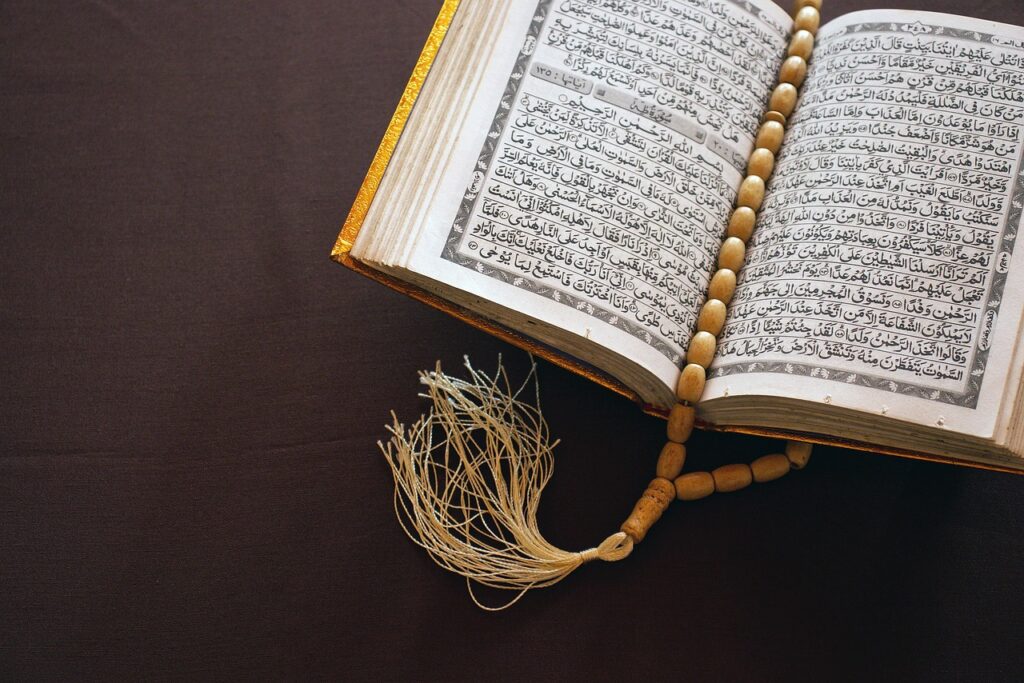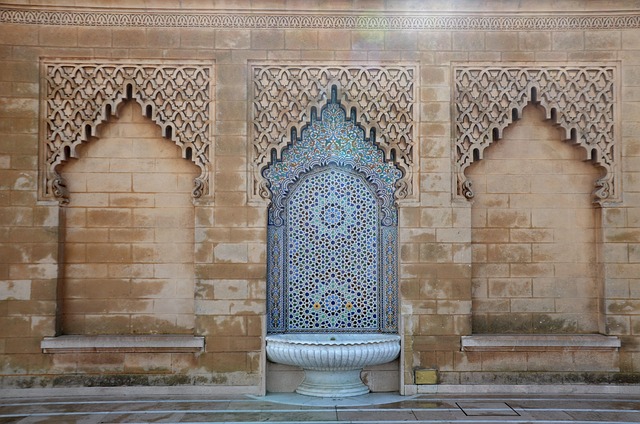Introduction
Marriage is one of the most important parts of Islam. However, the Quran gives clear rules about this sacred bond. Furthermore, many people don’t know what the Quran actually says about marriage age. Instead, they rely on other sources that sometimes contradict the holy book.
This article focuses only on what the Quran says about marriage. Moreover, we’ll look at the age and maturity rules for people getting married.
The Quranic Foundation of Marriage

The Quran shows marriage as a blessed union between mature people. Additionally, these people must be able to handle the duties that come with marriage. Therefore, understanding the Quran’s view means looking carefully at the Arabic words and context.
Maturity vs. Puberty: A Key Difference
What the Quran Says About Maturity
The Quran always talks about maturity, not just body changes. In fact, key verses focus on this point:
Verse 4:6 – “Test the orphans until they reach the age of marriage (nikah). If you find them to be mature in judgment (rushd), then hand over their property to them.”
This verse clearly links marriage eligibility with rushd (maturity, sound judgement), not just physical development. The Arabic word “rushd” indicates intellectual and emotional maturity, wisdom, and the ability to make sound decisions.
Verse 24:59 – “And when the children among you reach puberty, let them ask permission [at all times] as those before them have done. Thus does Allah make clear to you His verses; and Allah is Knowing and Wise.”
Here, the Quran uses “hulm” for children reaching a certain age, but when discussing marriage, it specifically requires “rushd” – showing a clear distinction between basic physical development and the maturity needed for marriage.
The Quranic Term for Marriage Partners
Throughout the Quran, when discussing marriage, the text consistently uses:
- Nisa (women) – never banat (girls)
- Rijal (men) – never awlad (boys)
This linguistic choice is significant and consistent throughout the Quran, indicating that marriage is intended for mature adults, not children.
Key Verses Using “Nisa” (Women)
The Quran’s consistent use of “nisa” (women) rather than “banat” (girls) in marriage contexts provides strong textual evidence:
Surah An-Nisa (4:3): “Marry women (nisa) of your choice…”
Surah An-Nisa (4:19): “It is not lawful for you to inherit women (nisa) against their will…”
Surah Al-Baqarah (2:221): “Do not marry polytheist women (nisa) until they believe…”
Surah Al-Baqarah (2:232): “When you divorce women (nisa) and they have fulfilled their waiting period…”
Surah An-Nisa (4:24): “And [also prohibited to you are all] married women (nisa)…”
This consistent linguistic pattern throughout the Quran’s marriage discourse strongly suggests that the holy book envisions marriage as involving mature women, not girls. The Arabic language makes clear distinctions between these terms, and the Quran’s deliberate choice of “nisa” indicates adult participants in marriage.
Fixing Common Wrong Ideas
The Waiting Period Verse (65:4)
Verse 65:4 says: “And those who no longer expect menstruation among your women – if you doubt, then their period is three months, and [also for] those who have not menstruated. And for those who are pregnant, their term is until they give birth. And whoever fears Allah – He will make for him of his matter ease.”
The Right Context:
- First, the whole chapter talks about women (nisa) throughout
- Second, “Those who have not had periods” means women with health problems affecting periods, not young girls
- Third, the verse talks about divorce rules for married women, not rules for marrying children
- Finally, if it meant children, it would go against the Quran’s focus on maturity for marriage
Why the Quran Stays Consistent
The Quran keeps the same message throughout. When we look at all marriage verses together, they all point to:
- Mental and emotional growth
- Being able to make smart choices
- Knowing what marriage duties are
- Being ready for married life
Key Quran Rules for Marriage
When we look at all verses about marriage together, they all point toward:
- Mental and emotional maturity (Quran 4:6 – requiring “rushd” before marriage is possible)
- The ability to make smart decisions (Quran 4:19 – stopping force; 2:232 – “do not stop them from marrying when they agree”)
- Understanding of duties (Quran 2:228 – “women have rights like those of men over them”; 4:34 – showing shared duties)
- Being ready for married life (Quran 30:21 – “He made for you mates from yourselves, so you may live in peace with them. He put love and mercy between your hearts”)
1. Smart Thinking (Rushd)
The Quran asks for smart thinking and good judgment before big life choices. This includes marriage.
2. Both People Agreeing
Verse 4:19 – “It is not right for you to inherit women against their will.” This needs the ability to give free, informed agreement. This is impossible without maturity.
3. Ability to Handle Duties
Marriage in the Quran involves important shared duties. Therefore, this needs emotional and mental readiness.
4. Money Readiness
Verse 24:33 – “And let those who cannot afford marriage stay pure, until Allah makes them rich from His gifts.”
The Problems with Other Sources
The Quran gives clear rules on maturity for marriage. However, some later historical sources show different information that:
- Goes against the Quran’s focus on maturity
- Uses different word meanings
- Contains stories that fight against clear Quran rules
- Shows facts that don’t make sense together
When sources fight against the Quran’s clear guidance, Muslims who follow the Quran as their main source naturally choose the divine text. Instead, they don’t rely on human ideas or historical accounts.
Using Quran Rules Today
The Quran’s focus on maturity for marriage fits with:
- Modern knowledge about mental growth
- Laws that protect minors
- Knowing that marriage needs emotional smarts
- The need for informed agreement in big life choices
Conclusion
The Quran’s guidance on marriage is clear and steady. Marriage is for mature adults who have the mental, emotional, and psychological readiness for this sacred promise.
Furthermore, the steady use of words for women and men (not girls and boys) shows this clearly. Additionally, the need for mature judgment (rushd) proves this point. Finally, the focus on both people agreeing all point to the same end.
The linguistic evidence is particularly compelling – the Quran’s consistent use of “nisa” (women) rather than “banat” (girls) across all marriage-related verses demonstrates a clear pattern that marriage is intended for mature adults, not children.
By focusing on the Quran text itself, we find a framework that protects people. Moreover, it makes sure of real agreement. Also, it sets up marriage as a partnership between mature, agreeing adults. These adults are ready for the duties and joys of married life.
This understanding not only honors the wisdom of the Quran. It also gives a base for healthy, stable marriages. These marriages are built on mutual respect, understanding, and real partnership between mature people.
Also learn why the previous scriptures are considered corrupted if Allah’s words are unchanging?
Last modified: 14/06/2025

